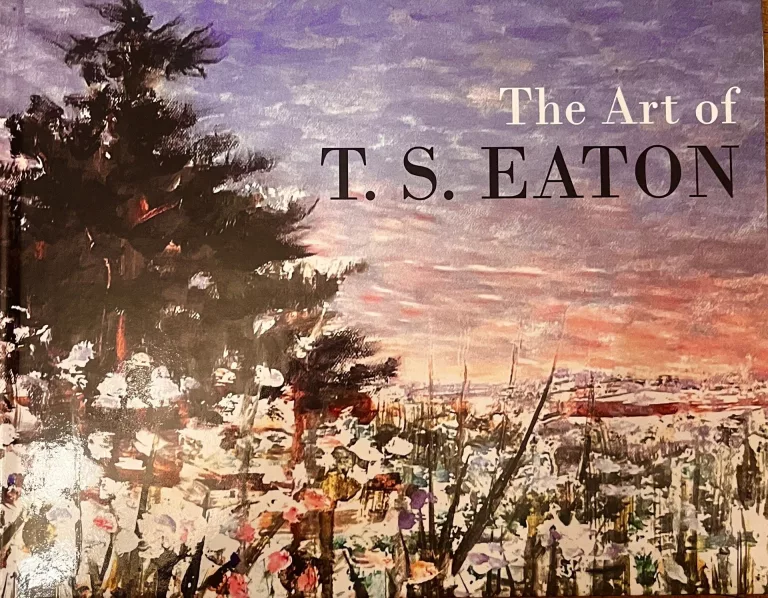By Drew Williams
Sentinel Columnist
Recently I wrote about “The Lion, the Witch and the Wardrobe,” a film that has become a holiday movie-watching tradition for our family. Another film that tops the list for many at this time of year is “It’s a Wonderful Life.” Starring Jimmy Stewart, Donna Reed and Lionel Barrymore, this black-and-white film was not a big draw at the box office when it came out in 1946. What is it about this movie, which follows the life of a small town businessman, that has captured the hearts of today’s audiences and turned it into a beloved holiday classic?
Our hero, George Bailey, is the guy who is going places and going to build great things: “I’m shakin’ the dust of this crummy little town off my feet and I’m gonna see the world. Italy, Greece, the Parthenon, the Colosseum. Then, I’m comin’ back here to go to college and see what they know. And then I’m gonna build things. I’m gonna build airfields, I’m gonna build skyscrapers a hundred stories high, I’m gonna build bridges a mile long…”
But George’s big dream is beset with disappointment again and again and again. He stands in the General Store and tells the world that he is about to leave for Italy, Baghdad and Samarkand, and that night his father dies of a heart attack. George finds himself doing the very thing he said he would not do: counting those nickels and dimes and running the family business, Bailey Brothers’ Building and Loan Company.
So the years pass and we find George at the town’s railway station, awaiting the return of his younger brother, Harry. Harry has been at college and the plan is that Harry will now take over the family business, allowing George to finally pursue his big dream. Harry arrives with an unknown woman on his arm whom he proceeds to introduce to George as his new wife. And almost within the same breath, we learn that her father has plans for Harry to work at his glass factory in Buffalo. George’s joyful expression morphs into disappointment as he realizes that once again his dream has been derailed.
We come to George and Mary’s wedding day one rainy day in October 1932. The newlyweds are stopped as they are heading off for their honeymoon travels with news that prompts them to have the taxi turn around and take them home. The director Frank Capra’s use of umbrellas in this scene is brilliant—we intuitively know that something is up. George does not float to happyland; he does not stay in the highest or any hotel; he never drinks the oldest champagne or tastes the richest caviar or dances to the hottest music; he never gets to travel; he does not get to college. In fact, he never leaves Bedford Falls. The only skyscrapers and bridges that he builds are the scale models that he makes in his living room. As you pick your way through the debris of George’s shattered dream you might think that all there is is rubble. But as you examine each of these disappointments more closely, you discover a trail of grace. Every disappointment and derailment is soaked in grace.
This trail of grace is easiest to see in the lives of the people around George. The whole community of Bedford Falls is blessed when George puts down his large suitcase and forsakes his dream to travel in order to stay at home and run the Bailey Brothers’ Building and Loan business after his father’s sudden death. As a boy, George had already risked his own life to save Harry from drowning; and in putting his life’s dream on hold, George set Harry up with a college education and a new career outside of Bedford Falls. The $2,000 that was to be for George and Mary’s honeymoon trip becomes the lifeline that saves the Building and Loan from collapse and keeps the town from the clutches of Henry Potter.
But there is something else going on here. In this overflow of grace, God is actually at work building a bigger dream for George Bailey. The problem is that at this point in the story George can’t see it. Isn’t it strange how something can be right in front of us but we just can’t see it? In the grace that soaked through each of these disappointments, God was already in the process of constructing a much bigger dream for George’s life. God’s grace was all the time soaking up George’s disappointments and transforming them into stepping-stones that were actually about building him a bigger hope and future. George Bailey was living inside the construction site of God’s bigger dream the whole time—it was just that he could not see it. We know the end of this movie. We know that in his darkest hour the light finally dawns for George. “The people walking in darkness have seen a great light;
on those living in the land of deep darkness
a light has dawned” (Isaiah 9:2, NIV). What did it take for the light to dawn in George Bailey’s life?
You remember George’s prayer on Christmas Eve, when all felt hopeless: “Dear Father in heaven, I’m not a praying man, but if you are up there and you can hear me, show me the way. I’m at the end of my rope. Show me the way, God.” The encouragement for us is that a prayer that sounds like that is not so much a breakdown but a breakthrough. We don’t have to be afraid of a prayer that sounds like that. This is one of the most authentic prayers that we will ever say. Having allowed George to come to the end of himself, the Lord then pulls George out of himself.
The Lord has been graciously building His hope and future, His bigger dream, in George’s life for a long time. We see it in the way that George has run the business, watched over Harry, and cared for Mary and their children. The Lord now leverages that part of his heart to get George’s full attention. At the moment when George has run out of all hope and future, when he thinks he is worth more dead than alive the Lord sends an angel who jumps ahead of him into the icy waters of the river, knowing full well that George’s heart can do but one thing in response. For the second time in his life, George jumps into freezing water, this time to save Clarence. The Lord will often use that part of our hearts, the part that is closest to His heart, to draw us even closer. And as strange as that seems, that can be the moment when the light dawns on us.
George had to come to the end of himself so that God could pull him out of himself and into his true self. For about four-fifths of the film, if you had asked George, “Are you living the dream?” he would have said, “No! My dream is over there, gathering dust in that suitcase.” If you have a dream that can fit into a suitcase what we can know for sure is that it is way too small. God’s dream for George was that he would build and save an entire town of people—fathers, mothers, children, young women, grandparents, real people who, without George’s sacrifice, might not have made it through the Depression, the war time or the austerity of the post-war years.
That dream had been a long time in construction before the light dawned for George and he was able to fully see and embrace it. Sitting on a bar stool at the end of his rope, George Bailey did not need a religious coach or some good advice; he needed a God who showed up for real. For George Bailey that person was Clarence, a very real angel sent from God. For you and me, it is the child of whom Isaiah speaks, a very real Savior—no mere messenger this time, but God Himself in the flesh who stepped into the darkness and who took our darkness upon Himself so that we might see His light and live.
“For to us a child is born, to us a son is given; and the government shall be upon His shoulder, and His name shall be called, Wonderful Counselor, Mighty God, Everlasting Father, Prince of Peace” (Isaiah 9:6).
Drew Williams is senior pastor of Trinity Church in Greenwich.





